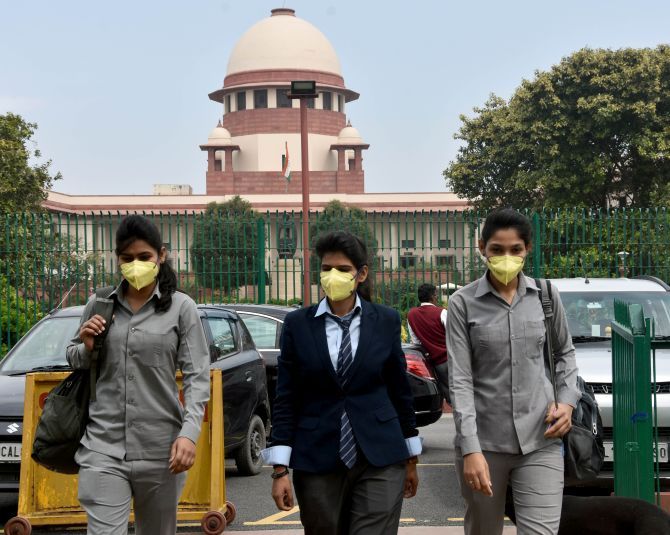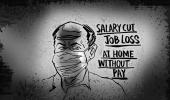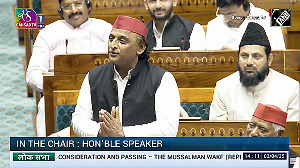The Supreme Court will hear all cases via video and audio links between May 18 and June 19, and has scaled up its '1881' helpline to assist advocates and litigants in e-filing and virtual hearing, according to a standard operating procedure (SoP) released on Sunday amid the coronavirus-triggered lockdown.

The fresh SoP assumed significance as the apex court, which has been hearing only urgent cases through video-conferencing during the lockdown, decided on May 15 to postpone its summer vacation by five weeks and declared that it would remain functional from May 18 to June 19.
Issuing the fresh SoP, the apex court said for the first time in the Registry, '1881' helpline number will remain functional from 10 am to 5 pm under supervision of senior officers to provide instant solutions to query of advocate and litigants about e-filing and other issues relating to judicial functions.
"In order to contain the spread of coronavirus (COVID-19), considering the prevailing situation, and taking into account the suggestions received from various quarters and the guidelines issued by the Government of India and Government of NCT of Delhi from time to time, the Chief Justice of India has been pleased to direct the constitution of the bench(es) to hear matters in the coming weeks since the Virtual Courts will be functioning from May 18, 2020 to June 19, 2020 (both days inclusive), that is, during the earlier notified summer vacations through video conferencing/ tele-conferencing mode only," the top court said.
The communication further said, "The proceedings by video-conference should not be recorded/stored or broadcast, in any manner whatsoever, as recording/copying/storing and/or broadcasting, by any means, of the hearings and proceedings before the apex court are expressly prohibited."
The fresh matters lying in the pool which could not be listed due to the pandemic have been scheduled to be listed before the virtual court for hearing during the period, it said.
"Once the pool of fresh matters is exhausted, matters belonging to Short Categories, which are ready for listing, will be listed before the court for hearing. In addition to the fresh matters and short category matters, such other matters shall also be listed for hearing, as may be directed," it said.
It further said that the timing of sitting of the virtual courts will be notified in the respective causelists which will be published well in advance.
"The Advocate-on-Record or the parties in person should specify as to whether he/she would link to the Bench through their own computer or would prefer to avail the facility for video-conferencing in the Supreme Court premises," the SoP said.
It, however, noted desktop, laptop, tablet computers provide stable connectivity for a video-conference, whereas signal drop/incoming call on mobile devices can delink such devices from an ongoing video-conference disrupting such video-conferencing.
"It may be further noted that smooth functioning of the video-conference is squarely dependent upon and subject to the connectivity (signal-strength/bandwidth) available at the end of the remote user(s), and hence it is expected that any party joining a video-conference hearing shall ensure robust connectivity and bandwidth are available at their end -- in this regard, parties may use broadband connection of minimum 2 mbps/dedicated 4G data connection, and may also ensure that no other device or application is connected to or using the bandwidth when the hearing by video-conferencing is progressing on their Vidyo-enabled computer."
The parties are first required to file the petition/miscellaneous application, preferably through the e-filing mode available on the top court's website and upon completion of all the formalities, and its due registration they are permitted to send separately the signed and verified mentioning-application containing a synopsis of urgency not exceeding one page, said the apex court in its fresh SoP.
It directed the parties to remember to keep their microphone on 'mute' at all times, except when the Bench requires them to make submissions as there is the possibility of the microphone catching audio feed from the speakers and creating 'echo/noise- disturbance' would become very high and may disturb the video-conference.
'During hearing through video-conferencing, the parties may kindly keep in mind that they are participating in court proceedings, and hence it is expected that they would not resort to any indecorous conduct or dress or comment,' said the circular.
It also said that the Registry may call any party upon publication of the cause-list, to test the device or its connectivity, and every such party is required to cooperate with the staff/official and abide by the instructions given, so that the hearing by video-conference may be smoothly conducted.
The new circular has superseded the previous SoPs on e-filing and mentioning which were issued on March 23, 26 and April 17.
The apex court, since March 25, has been holding courts through video conferencing due to the nationwide lockdown to contain the spread of coronavirus (COVID-19) and had suspended the entry of advocates and other staff into the high security zone on the basis of their proximity cards, till further orders.
During the lockdown, the benches usually assemble at the residences of the judges and the lawyers are allowed to join the video-conferencing from their homes or offices.











 © 2025
© 2025